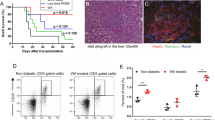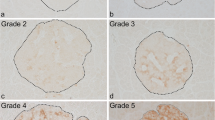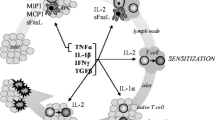Abstract
Inflammatory islet damage mediated by cytokines and oxygen radicals may limit the success of clinical islet transplantation for treatment of insulin-dependent diabetes mellitus. In this study, we investigated whether drugs such as currently used in islet-transplanted patients inhibit the release of IL-1β, TNFα, and superoxide from mononuclear blood cells in vitro. Methylprednisolone (10 µg/ml) inhibited the release of IL-1β and TNFα, but had no effect on superoxide generation. Both pentoxifylline (66 µg/ml) and cyclosporin A (300 ng/ml) slightly inhibited TNFα release without affecting IL-1β or superoxide generation. Nicotinamide (0.25 mM) did not interfere with the generation TNFα or superoxide and only slightly inhibited IL-1β production. A combination of methylprednisolone, pentoxifylline, cyclosporin A, and nicotinamide (concentrations for each substance as described above) inhibited TNFα generation by 74±6% (mean value±SEM, mononuclear blood cells from seven diabetic patients) without affecting IL-1β or superoxide generation. These data show that standard immunosuppressive therapy in islet transplanted patients may partially inhibit cytokine release but does not affect the generation of potentially islet-toxic superoxide from mononuclear cells.
Similar content being viewed by others
Author information
Authors and Affiliations
Rights and permissions
About this article
Cite this article
Weinand, S., Jahr, H., Hering, B. et al. Oxygen radical production in human mononuclear blood cells is not suppressed by drugs used in clinical islet transplantation. J Mol Med 77, 121–122 (1999). https://doi.org/10.1007/s001090050317
Issue Date:
DOI: https://doi.org/10.1007/s001090050317




